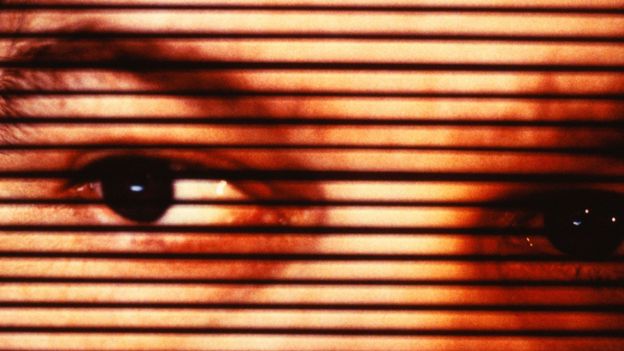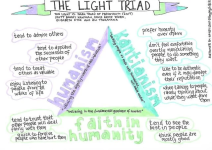It's a career that never interested me.I had a friend who went to an Ivy League school and had the chops to land himself a career in the hyper-capitalist cutthroat world of Wall Street investment banking. He eventually got so offended at the amount of avarice and narcissism that money and material possession bred in those people, and he quit his lucrative career to attend seminary school and devote his life to the message of Christ.
On a related note, I rewatched "Wall Street" a couple days ago. It was disgusting to see that amount of greed it took to deliberately fuck over people in order to line one's own pockets. Now we effectively have Gordon Gekko, albeit a demented and stupid one, in the WH. Sad.
I tried to search if anyone had done an analysis of the character's Dark Triad. No luck on a score, but clearly Gekko displayed all the traits of a Dark personality who was ruthless, lacking empathy and excessively greedy.
The first link discusses how Gekko is a composite of real people, the second link is how viewers rate onscreen villains in terms of the Dark Triad since such characters attract moviegoers. The third link is a study if a person with strong Dark Triad traits really does succeed better in life.

Gordon Gekko - Wikipedia

Do We Really Love Villains?
What makes male villains so much more appealing than female ones? New research explores how gender expectations may shape how we view Dark Triad traits in the media.

Do ruthless people really get ahead?
Does a dark personality actually help you get to the top of business? The truth is more complex.
Narcissists may seem charismatic to begin with, but they can become wearing with their constant need for attention
But before you consider cultivating a darker streak to further your career, Spurk points out that these people may lose out in other ways. Narcissists may seem charismatic to begin with, but they can become wearing with their constant need for attention. “Although people who don’t know them very well think they are charismatic, in the mid-to-long term there might be situations where people are no longer fascinated by their behaviour.” So even though they may be earning more money, they might suffer socially. And Machiavellian manipulators may come undone if their particularly ruthless or dishonest machinations are exposed.
If that’s not enough to persuade you, there is now an abundance of evidence showing that kindness may not make you money but it pays in other ways: more generous and honest individuals tend to be happier in life, and even have better physical health.
Steely ambition will help get you so far in life, but it alone can’t take the place real talent. For every real-life Gekko, Draper or Priestly you may come across, there will be others lurking in the shadows, without a job – or a friend.




